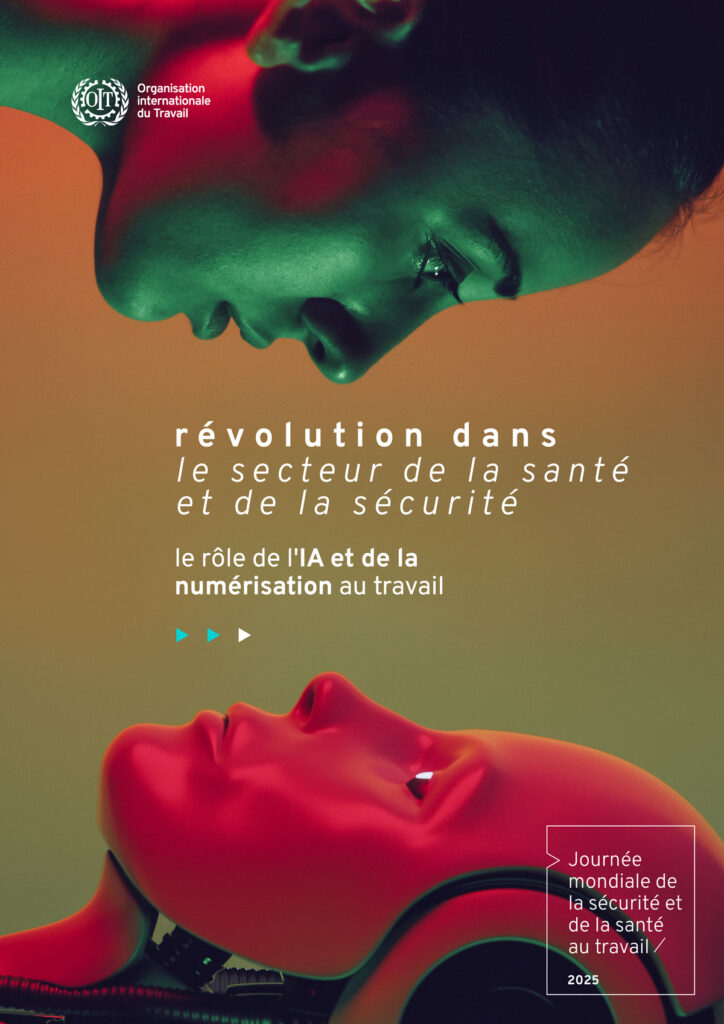

At a major global summit on artificial intelligence (AI), the ITUC has called for stronger worker involvement in how AI is introduced and used in the workplace.
The AI Action Summit, which commenced on 10 February 2025 and was hosted by the French government, brought together heads of state, international organisations, multinational companies, trade unions, and academics to address the societal implications of AI.
Speaking at the event, which precedes the digitisation and AI themed International Workers’ Memorial Day on 28 April, ITUC deputy general secretary Eric Manzi (above) stressed the need to protect and involve workers.
“The future of work, shaped by digitalisation and AI, is inevitable, but the outcomes are not predetermined. The question is not if this change comes, but how it is managed. And for this, workers’ trade unions are crucial,” he said.
“By ensuring that trade unions are actively involved in this transformation, we can create a future of work that is both inclusive and equitable.”
“This means respecting the fundamental, democratic trade union rights of collective bargaining and social dialogue. This is about democracy in the workplace that delivers technological changes that work for everyone.
“At the same time, we need strong safeguards against the unchecked use of algorithms in employment decisions and worker surveillance. We need strengthened regulation at national and international level to protect workers in the age of AI.”
Christy Hoffman, general secretary of UNI Global Union, outlined an urgent decision facing our societies: either let AI widen the gap between rich and poor or give workers a seat at the table to shape its future.
Representing more than 20 million workers across 150 countries, Hoffman joined a high-profile panel on “Harnessing AI for the Future of Work” where she called on governments, employers and tech giants to put people at the centre of AI innovations.
Hoffman stressed: “Workers everywhere have fear about their futures, and for good reason. Our societies are not ready for an AI transformation.
“Workers don’t have confidence that employers will include them in decisions about how and where AI will be used, that their jobs are safe or that they will have a chance to learn the skills that will be required to move forward.
“People fear losing not only their livelihoods but also their way of life. But we know it does not have to be this way. A voice on the job goes a long way towards addressing fear and minimizing risks. Unions have successfully negotiated new technology at work for a very long time.”
She added: “We know from history that an inclusive AI transition is possible but far from guaranteed. According to even modest projections, many millions are likely to be displaced by AI over the next five years. And we can’t sweep those people under the rug or watch them fall through the cracks.
“We have important choices to make about the kind of future we want, and time is running out. With the right ground rules, set by people-centred policies and hammered out through social dialogue and bargaining, we can rise together.”
The ITUC is demanding:
Additionally, the ITUC has stressed that stronger international regulation is needed, including a binding ILO Convention on Decent Work for the Platform Economy – a key demand of the global trade union movement in the leadup to the upcoming ILO International Labour Conference in June 2025.
https://www.ituc-csi.org/ai-action-summit-trade-union-rights
https://uniglobalunion.org/news/paris_ai_action_summit/
 Every year, the ILO commemorates the World Day for Safety and Health at Work on the 28 April
Every year, the ILO commemorates the World Day for Safety and Health at Work on the 28 April
Content also available in: español français
The 2025 World Day for Safety and Health at Work will focus on the impacts of digitalization and artificial intelligence (AI) on workers’ safety and health.
This theme will examine various new technologies through an occupational safety and health lens, including:
The campaign will also shed light on new work practices, such as automation of tasks, big data analysis, smart digital systems and workers management through AI.
New technologies have also given rise to new types of work, such as digital platform work and remote work/hybrid work/telework, which will be further examined.
The ILO will produce a report and other promotional materials examining these critical issues, looking at how the digital transformation of work may support safe and healthy working environments and what governments, employers and workers and other stakeholders are already doing to respond to these emerging challenges.